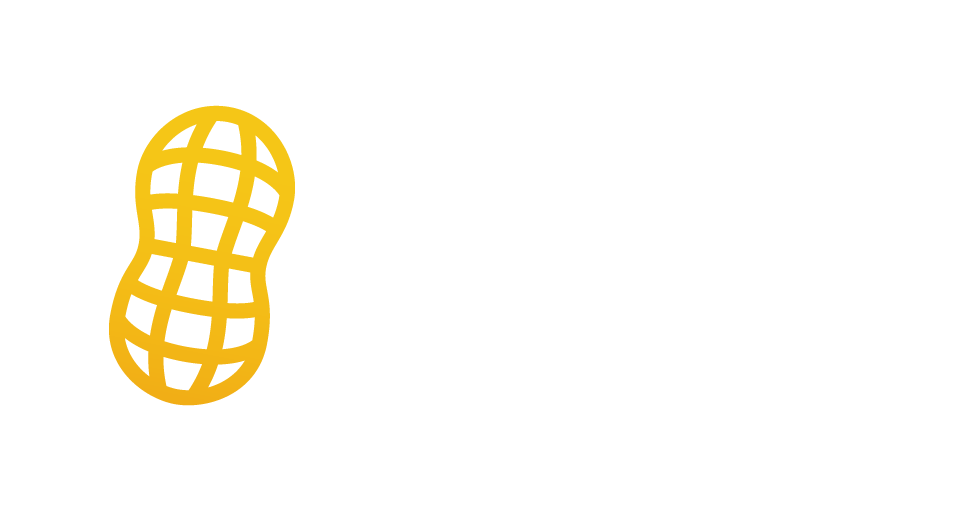At a glance:
- Customised solutions for conferences, CSR initiatives, and more, aligned with your goals.
- Events designed to resonate with your target demographic, enhancing engagement.
- Clear goals, meticulous execution, and comprehensive evaluation for measurable success.
- Detail-oriented logistics and innovative venue selection ensure flawless events.
- Actionable insights to optimise future planning and drive growth.
In the realm of business growth and networking, corporate events play a pivotal role in shaping brand identity, fostering relationships, and driving strategic objectives. At Peanut Production, we understand the intricacies involved in choosing the right type of corporate event to maximise impact and achieve business success. In this comprehensive guide, we delve into the nuances of corporate event planning and highlight key considerations to help businesses make informed decisions.
The crux of successful corporate event planning lies in aligning event objectives with business goals. By identifying the most suitable event type, businesses can optimise resources and deliver impactful experiences.

Understanding the Purpose of Corporate Events
A thorough understanding of the goals behind corporate events is essential for strategic planning and execution. Businesses often aim to achieve objectives such as brand awareness, lead generation, employee engagement, and client retention through corporate events. Likewise, the choice of event type directly impacts the ability to meet business objectives effectively. Aligning event themes, activities, and formats with business goals ensures coherence and relevance.
Types of Corporate Events
Each type of corporate event agency serves specific purposes and targets different objectives and audience preferences. Let’s delve deeper into each category:
Conferences and Seminars
Purpose:
These events focus on knowledge sharing, networking, and staying updated with industry trends. They provide a platform for thought leadership and professional development.
Benefits:
Attendees gain insights into the latest advancements, best practices, and emerging trends in their respective fields. Networking opportunities facilitate the exchange of ideas and potential collaborations.
Team Building Retreats
Purpose:
Team building retreats aim to foster camaraderie, improve communication, and enhance teamwork among employees.
Benefits:
Through various activities and exercises, employees develop stronger bonds, trust, and mutual understanding. Improved teamwork often leads to increased productivity and better problem-solving within the organisation.
Product Launches
Purpose:
Product launches are designed to create buzz, generate excitement, and attract potential customers for new offerings.
Benefits:
They serve as a platform to showcase the features and benefits of the product, differentiate it from competitors, and establish the brand as innovative and trendsetting.
Corporate Galas and Award Ceremonies
Purpose:
These events celebrate achievements, recognise talent, and strengthen relationships with stakeholders such as employees, clients, and partners.
Benefits:
They contribute to enhancing brand reputation, fostering a positive corporate culture, and boosting employee morale through recognition and appreciation.
Trade Shows and Exhibitions
Purpose:
Trade shows and exhibitions provide platforms for businesses to showcase their products, generate leads, and conduct market research.
Benefits:
Exhibitors can interact directly with potential customers, gather feedback, and observe industry trends. It’s an opportunity to build brand visibility and forge partnerships with other industry players.
Corporate Social Responsibility (CSR) Events
Purpose:
CSR events demonstrate a company’s commitment to social causes, enhance brand perception, and engage employees in meaningful activities.
Benefits:
By participating in CSR initiatives, companies can positively impact communities, strengthen relationships with stakeholders, and align business practices with societal values. Engaged employees often feel a sense of pride and purpose, leading to higher morale and loyalty.
Read On: Explore different types of corporate events in Australia
Assessing Your Business Needs
Before selecting an event type, businesses must conduct a comprehensive analysis to ensure alignment with strategic objectives and audience expectations. Define clear objectives, such as brand promotion, client acquisition, employee engagement, or industry networking, to guide event planning decisions. Understanding the demographics, preferences, and interests of your target audience and stakeholders helps tailor event experiences for maximum impact.
Evaluate budget allocations and logistical requirements to ensure seamless planning, execution, and ROI optimisation. Consider the company’s culture, values, and employee feedback when designing events to enhance engagement and satisfaction.

Factors to Consider When Choosing the Right Event Type
When choosing the right event type for your business, several crucial factors come into play. Let’s elaborate on each of these factors:
Alignment with Business Objectives
Ensure that the chosen event type aligns with your company’s overarching goals and key performance indicators (KPIs). For example, if your goal is to increase brand awareness, a product launch or trade show might be more suitable than a team-building retreat.
Audience Preferences and Demographics
Understand your target audience’s preferences, interests, and demographics. Tailor the event theme, activities, and content to resonate with their needs and preferences. For instance, if your audience consists mainly of tech-savvy professionals, incorporating interactive technology and digital elements into your event might be beneficial.
Timing and Seasonality
Consider the timing of your event to optimise attendance and engagement levels. Take into account factors such as holidays, industry events, and peak business seasons. Timing your event strategically can help maximise participation and ensure a successful turnout.
Budget Considerations
Evaluate your budget constraints and align them with expected outcomes. Prioritise cost-effective strategies that offer the most value for your investment. Consider alternative funding sources or sponsorship opportunities to supplement your budget if necessary.
Logistics and Venue Requirements
Choose venues and logistical arrangements that enhance the overall attendee experience and logistical efficiency. Factors to consider include accessibility, capacity, amenities, and technological capabilities. Ensure that the chosen venue aligns with the event’s theme and objectives.
Potential ROI and Long-Term Benefits
Evaluate the potential return on investment (ROI) and long-term benefits of each event type. Consider factors such as lead generation, brand exposure, customer acquisition, and relationship building. Look beyond immediate gains and assess how each event type contributes to your company’s long-term growth and sustainability.
Planning and Execution Tips
- Establish clear event objectives and KPIs
- Build a comprehensive event timeline and checklist
- Selecting the right vendors and partners
- Promote the event effectively through marketing and communication channels
- Ensure seamless execution and contingency planning
Also read : How to plan a successful corporate event
Measuring Success and Post-Event Evaluation
Post-event evaluation is critical for refining strategies, assessing ROI, and enhancing future event planning efforts.
Defining Key Success Metrics
Establish clear key performance indicators (KPIs) aligned with your event objectives. These could include metrics such as attendance rates, lead generation numbers, customer feedback scores, revenue impact, or social media engagement levels.
Collecting Feedback from Attendees and Stakeholders
Gather feedback from various stakeholders, including attendees, sponsors, speakers, vendors, and partners. Use surveys, interviews, or online feedback forms to gather insights into their experiences. Ask about aspects such as event logistics, content relevance, speaker quality, networking opportunities, and overall satisfaction.
Analysing ROI and Impact on Business Objectives
Evaluate the return on investment (ROI) by comparing the costs incurred with the benefits gained from the event. Calculate revenue generated directly from the event, as well as any indirect impacts such as increased brand visibility or customer loyalty. Assess how well the event contributed to achieving predefined business objectives, such as increasing sales, expanding market reach, or enhancing brand reputation.
Identifying Areas for Improvement and Future Planning
Use the insights gathered from post-event evaluation to identify areas for improvement and inform future planning efforts. Determine what aspects of the event were successful and should be replicated in future events. Likewise, address any shortcomings or challenges encountered during the event and develop strategies to overcome them in the future. Continuously refine event strategies, enhance attendee experiences, and adapt to evolving business needs based on the lessons learned from each event.
Choosing the best corporate event agency is a strategic decision that can significantly impact business outcomes and brand perception. At Peanut Production, we emphasise the importance of thoughtful planning, audience-centric approaches, and measurable results in creating memorable and impactful corporate events. By aligning event strategies with business objectives and leveraging best practices in event management, businesses can unlock opportunities for growth, engagement, and success.


